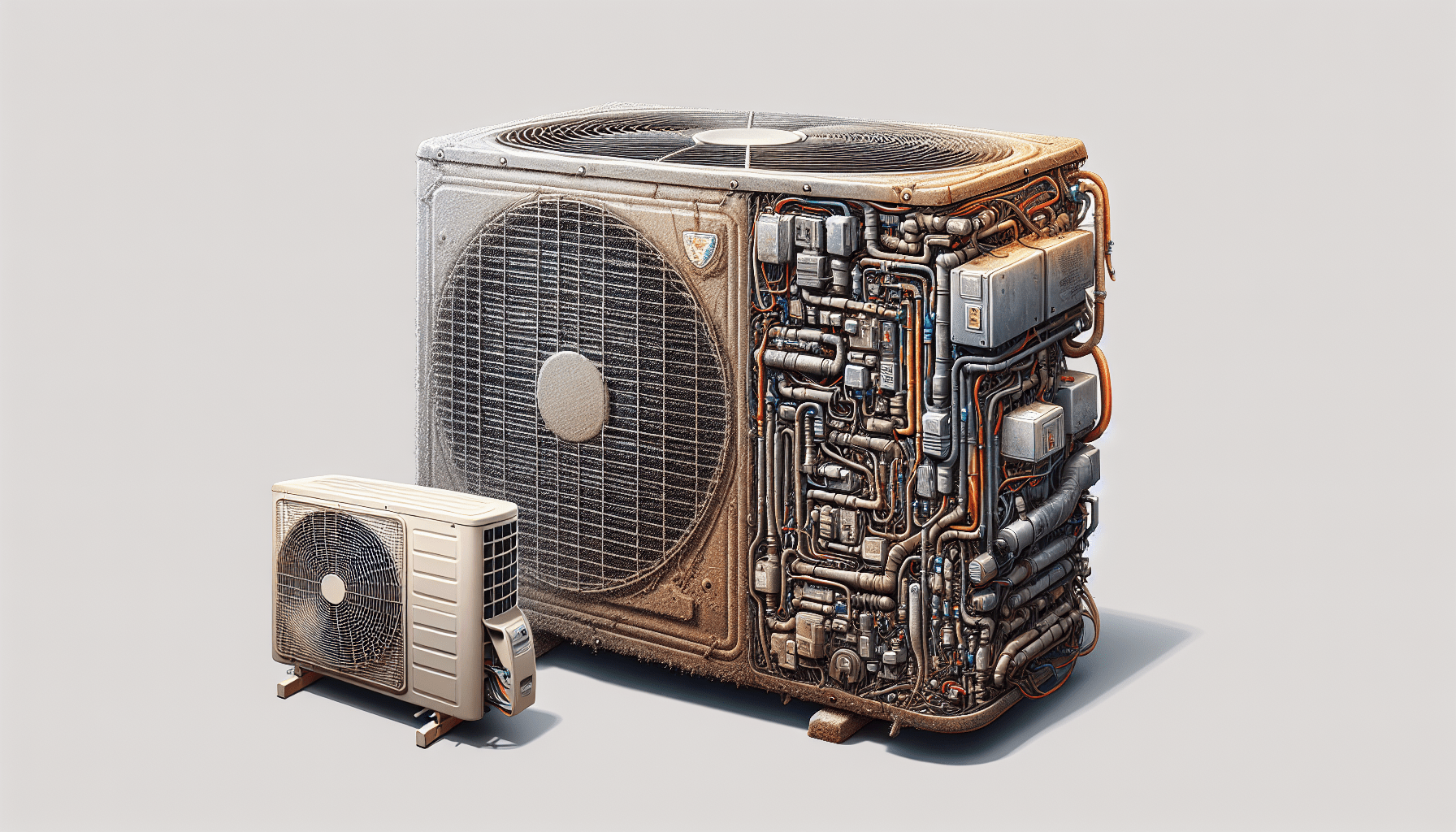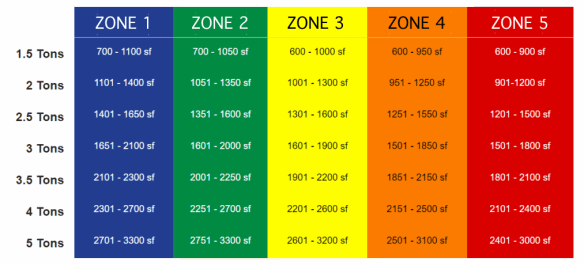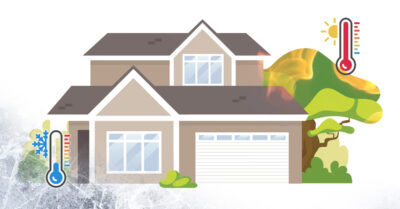Welcome to the ultimate guide on best practices for choosing and installing air conditioner filters! In this article, you will learn the importance of selecting the right filter for your air conditioning system and how to properly install it for optimal performance. By following these simple tips, you can ensure that your air conditioner works efficiently and effectively, providing you with clean and cool air all year round. Let’s get started on creating a healthier and more comfortable indoor environment for you and your loved ones!
Best Practices For Choosing And Installing Air Conditioner Filters
Have you ever wondered how to choose the right air conditioner filter for your home? In this article, we’ll discuss the best practices for selecting and installing air conditioner filters to ensure optimal air quality and efficiency. Whether you’re a first-time homeowner or a seasoned DIY enthusiast, this guide will help you make informed decisions when it comes to maintaining your air conditioning system.

Why Are Air Conditioner Filters Important?
Before we dive into the specifics of choosing and installing air conditioner filters, let’s first understand why they are so crucial. Air conditioner filters play a vital role in maintaining indoor air quality by trapping dust, pollen, pet dander, and other airborne particles. They also prevent debris from clogging the system, ensuring efficient operation and extending the lifespan of your air conditioner. Neglecting to replace or clean your filters regularly can lead to poor air circulation, increased energy consumption, and potential damage to your HVAC system.
Protect Your Health and Well-being
Sure, changing your air conditioner filter might seem like a mundane task, but in reality, it goes a long way in safeguarding your health and well-being. By capturing pollutants and allergens, air filters help reduce indoor air pollution, which can exacerbate respiratory conditions like allergies and asthma. When you prioritize filter maintenance, you create a cleaner, healthier living environment for you and your family to enjoy.
Preserve Your Air Conditioner’s Efficiency
In addition to promoting better indoor air quality, clean air filters also help your air conditioning system run more efficiently. When filters become clogged with dirt and debris, they impede airflow, forcing your system to work harder to maintain a comfortable temperature. By regularly replacing or cleaning your filters, you can improve energy efficiency, reduce utility bills, and prevent unnecessary wear and tear on your HVAC equipment.
Types of Air Conditioner Filters
When it comes to choosing an air conditioner filter, there are several types to consider, each with its own benefits and drawbacks. Understanding the differences between these filter options will help you make an informed decision based on your specific needs and budget.
Fiberglass Filters
Fiberglass filters are the most common and affordable option on the market. They consist of layered fiberglass fibers that capture large particles like dust and lint. While fiberglass filters are budget-friendly, they tend to have lower filtration efficiency compared to other types of filters. They are best suited for protecting your air conditioner from larger debris but may not be as effective at trapping smaller particles and allergens.
Pleated Filters
Pleated filters are an upgrade from fiberglass filters in terms of filtration efficiency. These filters feature folded layers of fabric that create a larger surface area for trapping dust and other particles. Pleated filters are available in various MERV (Minimum Efficiency Reporting Value) ratings, which indicate their ability to capture different sizes of particles. While pleated filters are more expensive than fiberglass filters, they offer better filtration performance, making them a popular choice for households concerned about indoor air quality.
High-Efficiency Particulate Air (HEPA) Filters
HEPA filters are the gold standard when it comes to air filtration. These filters are capable of capturing up to 99.97% of particles as small as 0.3 microns in size. HEPA filters are particularly effective at removing allergens, bacteria, and viruses from the air, making them an excellent choice for allergy sufferers and those with respiratory conditions. Keep in mind that HEPA filters may require modifications to your HVAC system to ensure proper airflow due to their high level of filtration.
Washable Filters
Washable filters are a cost-effective and environmentally friendly option for those looking to reduce waste. These filters can be removed and cleaned with water or a vacuum, allowing you to reuse them multiple times. While washable filters are convenient, they may not offer the same level of filtration efficiency as disposable filters. It’s essential to follow manufacturer guidelines for cleaning and maintenance to ensure optimal performance.
How to Choose the Right Filter Size
Once you’ve decided on the type of air conditioner filter that best suits your needs, the next step is to determine the correct filter size for your HVAC system. Using the wrong filter size can lead to inefficiency, reduced air quality, and potentially costly damage to your air conditioner. Here’s how to ensure you select the right filter size for your unit.
Check Your Current Filter Size
The easiest way to identify the correct filter size for your air conditioner is to check the dimensions of your existing filter. The size is typically printed on the frame of the filter, indicating the length, width, and thickness in inches. If you can’t locate this information, use a measuring tape to determine the dimensions of the filter slot in your system.
Consult Your HVAC System Manual
If you’re unsure about your filter size or can’t find the information on the existing filter, refer to your HVAC system manual. The manual should provide details on the recommended filter size and type for your specific make and model. It’s essential to follow these guidelines to ensure compatibility and optimal performance.
Measure the Filter Slot
If you’re installing a filter for a new HVAC system or making upgrades, measuring the filter slot is crucial for selecting the correct size. Use a measuring tape to determine the width, height, and thickness of the slot where the filter will be placed. Make sure to account for any obstructions or protrusions that may affect the fit of the filter.
How Often Should You Replace Your Air Conditioner Filter?
Maintaining a regular filter replacement schedule is key to ensuring the effectiveness and efficiency of your air conditioning system. While the frequency of filter changes may vary depending on factors like filter type, indoor air quality, and usage patterns, a general guideline can help you stay on track.
Standard Filters: Every 1-3 Months
For fiberglass or pleated filters with a standard MERV rating, it’s recommended to replace them every 1 to 3 months. Factors such as the number of occupants in your home, presence of pets, and overall indoor air quality may influence how often you should change the filter. Checking the filter monthly and replacing it when dirty or clogged is a good practice to ensure optimal performance.
HEPA Filters: Every 6-12 Months
Due to their high filtration efficiency, HEPA filters can last longer than standard filters before needing replacement. Most manufacturers recommend changing HEPA filters every 6 to 12 months, depending on usage and environmental conditions. It’s essential to monitor the filter’s condition regularly and follow the manufacturer’s guidelines for replacement intervals.
Washable Filters: Every 3 Months
Washable filters require regular cleaning to maintain their filtration efficiency. Depending on the level of pollutants in your home and the frequency of use, washable filters should be cleaned every 1 to 3 months. Follow the manufacturer’s instructions for cleaning and drying the filter to ensure it performs optimally.

How to Install Your Air Conditioner Filter
Now that you’ve selected the right filter size and type for your air conditioner, it’s time to install it properly. Follow these steps to ensure a successful installation and maintain optimal performance of your HVAC system.
Turn Off Your HVAC System
Before attempting to install a new air conditioner filter, switch off your HVAC system to prevent any damage or injury. Locate the power switch on your system’s control panel or circuit breaker and turn it off. Wait a few minutes for the system to power down completely before proceeding.
Remove the Old Filter
Carefully remove the existing filter from the filter slot by sliding it out or unsnapping it, depending on the design of your HVAC system. Take note of the direction of airflow indicated on the filter frame, as this will help you insert the new filter correctly. Inspect the old filter for dirt, dust, or damage, and dispose of it properly.
Insert the New Filter
Hold the new filter with the airflow direction arrow pointing toward the blower motor or furnace. Slide the filter into the filter slot, ensuring a snug fit without gaps around the edges. Make sure the filter is positioned securely to prevent air bypass and maximize filtration efficiency. If applicable, secure the filter in place according to your system’s design.
Turn On Your HVAC System
Once you’ve installed the new filter correctly, you can turn your HVAC system back on to resume normal operation. Listen for any unusual sounds or issues that may indicate a problem with the filter installation. Check that the airflow feels consistent and that your system is cooling or heating as expected.
Additional Tips for Maintaining Your Air Conditioner Filter
In addition to regular filter changes and correct installation, there are a few extra tips you can follow to ensure your air conditioner filter stays in top condition.
Schedule Routine HVAC Maintenance
Consider scheduling annual HVAC maintenance with a qualified technician to inspect your system, including the filter, and address any potential issues. Professional maintenance can prolong the lifespan of your air conditioner, improve efficiency, and prevent costly repairs down the road.
Monitor Indoor Air Quality
Pay attention to signs of poor indoor air quality, such as excessive dust, musty odors, or increased allergy symptoms. These indicators may suggest that your filter needs replacement sooner than planned or that additional air purification measures are necessary.
Invest in Air Purifiers
If you’re looking to enhance indoor air quality further, consider investing in standalone air purifiers with HEPA filtration. These devices can complement your HVAC system’s filter and provide additional protection against airborne contaminants.
Keep Outdoor Units Clean
Regularly clean debris, leaves, and vegetation around your outdoor AC unit to prevent obstructions and maintain proper airflow. A clear space around the unit promotes efficient operation and reduces strain on the system.
Conclusion
Choosing and installing the right air conditioner filter is essential for maintaining a healthy, comfortable indoor environment and ensuring the efficiency of your HVAC system. By following best practices for filter selection, sizing, replacement, and installation, you can optimize air quality, energy efficiency, and overall system performance. Remember to consult your system manual, adhere to manufacturer recommendations, and prioritize regular maintenance to keep your air conditioner running smoothly for years to come. If you have any further questions or need assistance with your air conditioner filter, don’t hesitate to reach out to a qualified HVAC professional for guidance.





